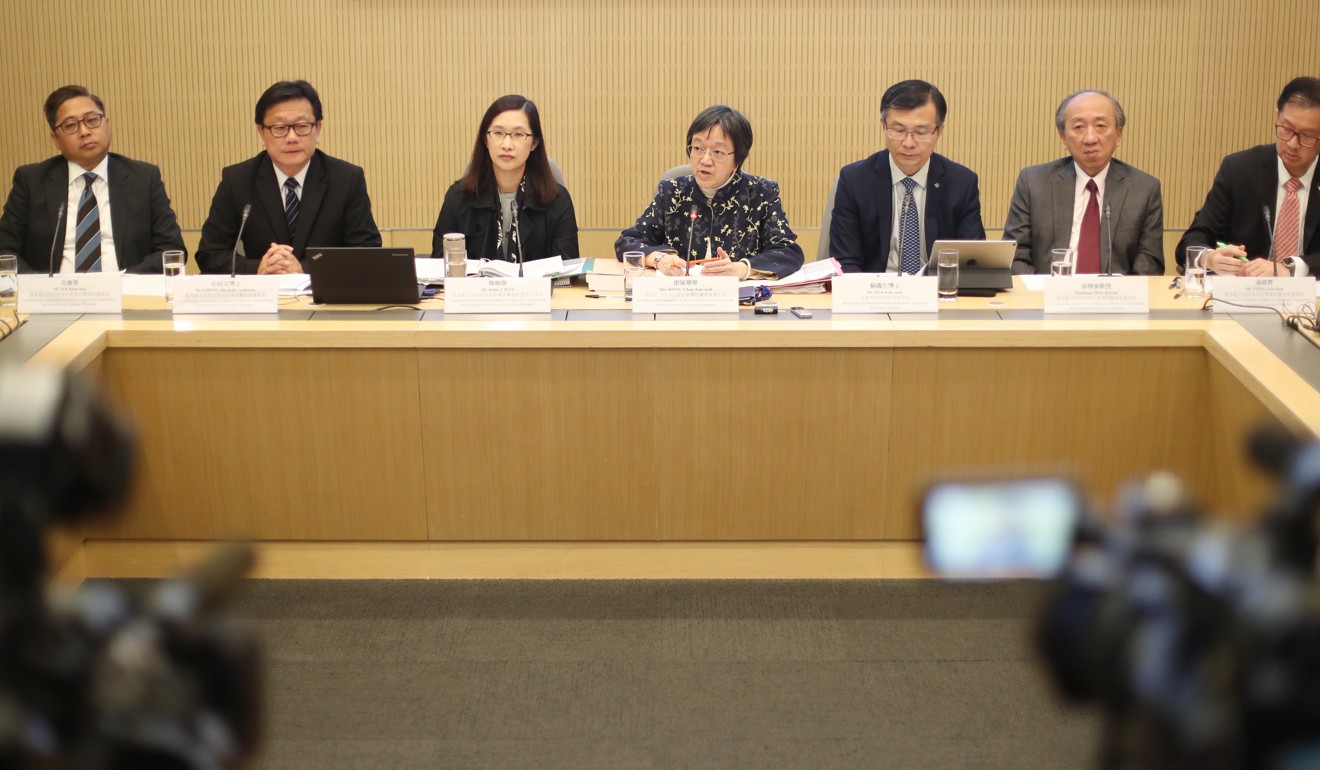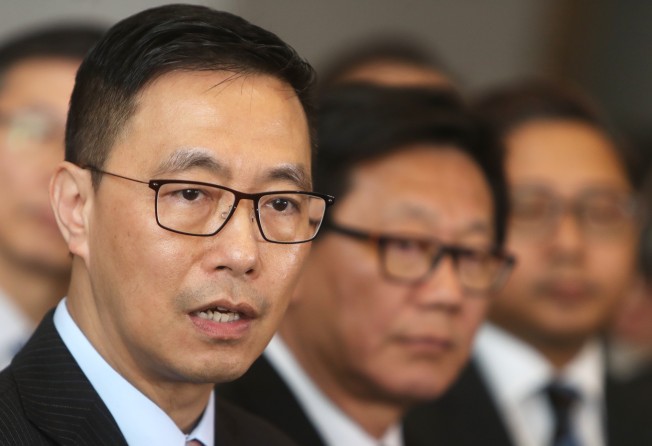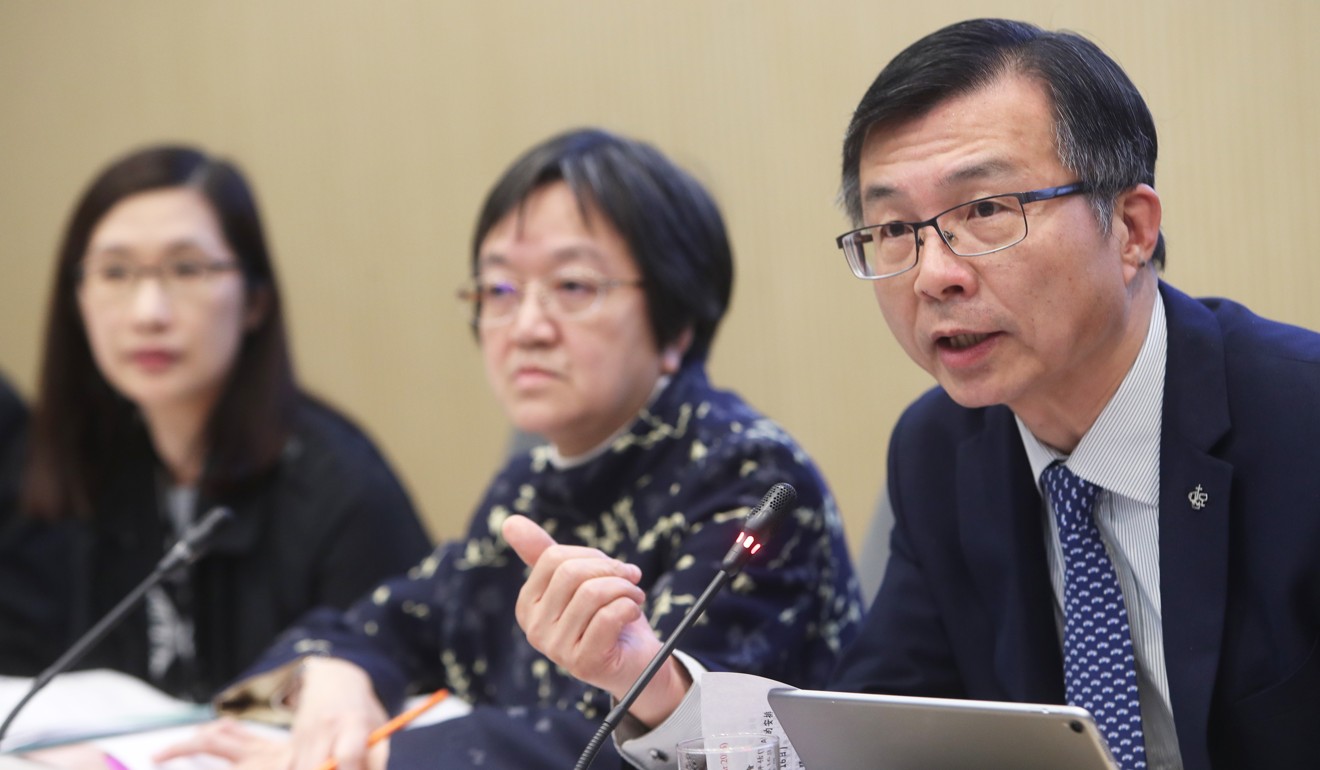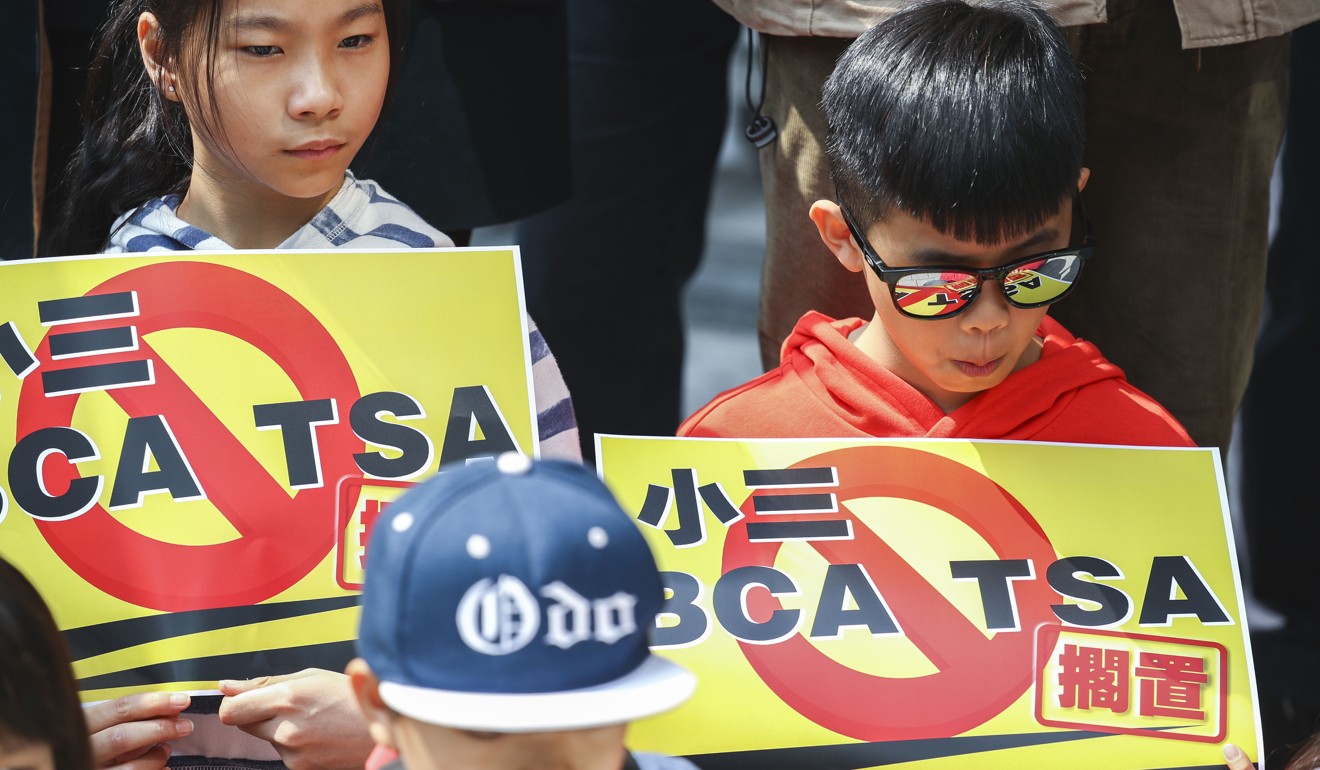
Only one in 10 Hong Kong Primary Three pupils will have to sit TSA exam, education minister says
But some parents remain worried about excessive drilling as schools will still be permitted to test all pupils if they wish

Just 10 per cent of Primary Three pupils will this year have to sit a competency assessment notorious for putting undue pressure on children, and no reports will be issued on school performances, Hong Kong’s education minister said on Friday.
Secretary for Education Kevin Yeung Yun-hung announced the figure after accepting a report from a committee tasked with reviewing the controversial test.
All public schools in the city will be required to participate, but only one in 10 pupils at each school will be randomly selected for the test.
But concerns remained among parents and educators about pupils being drilled in preparation, after the Education Bureau also gave schools the choice to have all their Primary Three pupils take the exam if they wished to get a report on their school’s overall performance.
Speaking after a meeting of the government-appointed Coordinating Committee on Basic Competency Assessment and Assessment Literacy, Yeung said the Primary Three Territory-wide System Assessment (TSA) would take place this year for all subsidised schools including direct subsidy scheme schools, using a random sampling method. That would involve selecting 10 per cent of pupils in each of these 500 primary schools.

Yeung said the names of pupils and schools would not be recorded, and school reports would not be provided for those where only 10 per cent of pupils were involved.
The TSA – which gauges English, Chinese and maths ability and is scheduled for May and June – is associated with teachers drilling pupils amid a widespread belief that the bureau used the data to rank schools. The bureau has denied such claims.
While revised assessments issued in recent years, such as the Basic Competency Assessment (BCA) research study, were made simpler and shorter, critics have said the motivation to drill still exists.
Deputy Secretary for Education Hong Chan Tsui-wah, the committee’s chairwoman, said that in principle all pupils selected for the test should participate.
She said the bureau would leave it to schools to decide whether to consult parents on the issue of the entire Primary Three cohort taking part.

The committee has provided a separate option for the Examinations and Assessment Authority to make arrangements to enable schools to have all their Primary Three pupils participate in the assessment. These schools would then be able to obtain individual school reports.
“I need to stress this is voluntarily participation and the government will not take these reports or check which schools participated,” Yeung said.
The Post spoke to three principals who said they would be unlikely to have their whole Primary Three cohort take the exam, but they added they would still need to speak with stakeholders.
Lena Tsang Ling-ling, mother of a Primary Three pupil, believed her son’s school, being one operated by the government, would have all pupils participate.
“The school might compare its results with other government schools, leading to the pupils being drilled,” she said.
Tsang hoped the government could give children the option to skip the assessment, but ruled out boycotting the test as it would be teaching her son wrong values.
Yeung said there was not necessarily a relationship between drilling and the TSA. After enhancements to the assessment in the last two years, including reviewing questions, the committee had not noticed any obvious drilling, he said.

The committee had taken into consideration societal concerns in introducing the new measures, Yeung added.
He said the new TSA format would be a long-term arrangement, but the bureau would continue to enhance it.
Education sector lawmaker Ip Kin-yuen, who is also vice-president of the Professional Teachers’ Union, urged the bureau to allow children to opt out at schools where the entire cohort were taking the assessment. Authorities should also ensure school reports are only accessible to school boards and teachers, he said.
The government should conduct a three-year random sampling study to understand teachers and parents’ opinions to check whether drilling persisted, Ip added.
He vowed to oppose the TSA if the government did not adopt these measures.
Dr So Kwok-sang, secretary general of the Examinations and Assessment Authority, said schools would have to inform the authority in early April whether they wanted all their Primary Three pupils to take part.
The changes to the TSA came after a review in which views were collected through questionnaires and 191 consultation sessions, covering the sponsoring bodies of more than 70 per cent of primary schools, about 3,000 primary school heads and teachers, and more than 23,000 parents of Primary Three students from 509 schools.
The government conducted a trial of a less demanding assessment at about 50 schools in 2016 and citywide implementation of the research study last year.
Parents and educators have for years raised concerns about the pressure the exam puts on pupils.